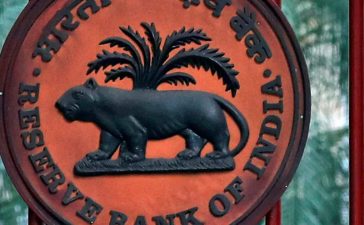So, will you take my Just One Thing challenge?’ asks Dr Michael Mosley, eyes glinting, in the first episode of a new TV series he was filming in the months before he died.
Only two episodes were completed before his untimely death on the Greek island of Symi earlier this year.
But as he returns to our screens one final time, it is this infectious call-to-action that lives on.
Building on the success of his hugely popular podcast and best-selling book, the presenter and Daily Mail columnist challenges viewers to try one of his scientifically proven tips for a week to see for themselves how they can boost body and brain.
First up is single mum Jane from North Wales who agrees to try a 30-second cold shower every morning. After much initial squealing, she soon finds that a short burst of cold water first thing leaves her feeling energised and more alert.

Dr Michael Mosley returns to our screens one final time in the first episode of a new TV series he was filming in the months before he died
She then recruits a group of friends to give it a try. Though reluctant to begin with, they are soon converts, too, thanks to Dr Mosley’s gentle encouragement, agreeing that this quick technique has a huge impact on how they feel.
Just One Thing is all about making small changes that can make a big difference. And for some of these changes, Dr Mosley believed timing is key, explaining not only why they work but suggesting the best time of day to do them.
Did you know that a walk has added benefits when you get outside in the early morning light? Or that coffee is best drunk a couple of hours after you’ve woken up?
So, as we celebrate the very best of his transformative advice in a new two-part series, here is the definitive guide to incorporating Just One Thing into your daily routine, starting with what you can do when you first wake up.
Early morning boosters
Take a cold shower
If less than a minute of discomfort each morning can help you combat stress and bolster your immune system, a 30-second cold shower’s got to be worth a try.
After your normal warm shower, turn the tap to the coldest setting and breathe slowly and steadily for 10 to 60 seconds.
The first time I did this, it was a real shock. There was much shrieking from the bathroom and I was out of there in less than 10 seconds. But it gets better with practice.
Mercifully, you don’t have to spend very long in a cold shower to gain the benefits. (In fact, staying too long can be counterproductive). The important thing is to remain in long enough to get your breathing under control.
As well as cold showers, cold water swimming is becoming increasingly popular, thanks to claims that it can boost your mood, lower stress, improve your cardiovascular health and strengthen your immune system. So what’s going on?
Well, the first time you have an icy cold shower or jump in the sea in winter, it will, not surprisingly, trigger a stress response.
You will start hyperventilating, your heart rate will shoot up and your body will be flooded with adrenaline. The shock of the cold water sends your circulatory system into overdrive.
But if you keep on doing it, your body will, over time, get used to it. Research has shown that it takes six immersions in cold water to halve our stress response – our heart rate doesn’t rise as much, we panic less.
The idea is that repeatedly undergoing the mild stressor of immersion in cold water will help you cope with other stressors as well, thus helping you fight infections. In a large trial, carried out in the Netherlands in the winter months, 3,018 volunteers, aged between 18 and 65 and with no previous experience of regular cold showers, were randomly allocated to having a cold shower or a warm shower every morning, for a month.

Research has shown that it takes six immersions in cold water to halve our stress response – our heart rate doesn’t rise as much, we panic less
The study found that those who had the cold shower took 30 per cent fewer days off sick from work than the control group.
Cold water immersion also appears to have an anti-inflammatory effect, which is important when you consider that so many of the modern conditions that affect us – Alzheimer’s, type 2 diabetes, heart disease, depression – have their root in chronic inflammation.
If you are planning on moving on from showers to cold water swimming, try it with a friend or join a club (there are lots out there).
And do check with your GP first if you have any underlying health conditions as getting cold can be a double-edged sword.
Go for an early walk
Getting out and about first thing – within an hour or two of getting up – can improve your sleep, boost your mood, increase your fitness and cut your risk of heart disease and diabetes.
You get the health benefits not only of the exercise, but also of exposure to natural light.
Light levels outside are at least ten times brighter than inside your house and when this light hits sensors at the back of your eyes, this sends messages to your pituitary gland, ordering it to stop producing melatonin.
Melatonin is known as ‘the hormone of darkness’ because rising levels in the evening help put you to sleep at night.
As well as waking you up, bright outdoor light helps reset your internal body clock, which in turn helps regulate hunger, mood, body temperature and all sorts of other important bodily processes. This resetting of the internal clock also means that when you head for bed, you are ready to sleep.
Any walk – short, long, fast or slow – will also strengthen muscles and bones, reduce joint and muscular pain, burn a few calories and increase energy levels.
If you want to supercharge it, speed it up. A brisk walk at about 100 paces a minute not only increases your fitness, it might even extend your life.
It increases your heart rate, placing a greater demand on your cardiovascular system, thereby maintaining cardio fitness and helping lower blood pressure.
Which is why brisk walkers have a 21 per cent lower risk of death from heart disease than the more sedentary.
Sing for five minutes
Singing in the shower or while you are making breakfast is a great way to boost mood, reduce anxiety and even relieve chronic pain. Also, and most importantly, it is fun.
One way singing makes us feel good is by boosting our endocannabinoids. These are chemicals naturally produced in our bodies that have a very similar structure to those found in the cannabis plant; in high concentration, they can have mood-boosting effects.
Studies by Dr Daisy Fancourt and her team at University College London have found a single session of singing can lead to improvements in mood and measurable reductions in stress and inflammation.
Her team have also measured improvements in lung function in people with lung diseases and in memory in people with dementia, as well as notable reductions in blood pressure, muscle tension and feelings of loneliness.
The natural endocannabinoid high you get from singing can also help with pain relief.
Breakfast time tweaks
Don’t eat too early
By delaying breakfast for an hour, you will be extending your overnight fast (i.e. how long it has been since your last meal). This is known as time-restricted eating (TRE) and is based on research showing the multiple health benefits to be had from having a slightly later breakfast and an earlier evening meal (and, of course, no late-night snack!)
There have been numerous studies showing that extending your overnight fast and eating within a shortened daytime window can lower your blood pressure and cholesterol levels, help you lose weight, improve your sleep, cut your risk of developing type 2 diabetes, and may even slow the rate at which the brain declines as we age.

Research shows there are multiple health benefits to be had from having a slightly later breakfast and an earlier evening meal
Dr Emily Manoogian, a leading researcher from the Salk Institute, suggests choosing an eight to ten-hour eating window that ideally starts one or two hours after you wake up in the morning and ends three to four hours before you go to bed.
‘If possible, aim to eat most of your calories in the first half of your day, and for best results, aim to have a consistent eight hours in bed each night,’ she says,
Outside of the eating window, while you are effectively ‘fasting’, she recommends drinking only water – hot or cold.
Serve up some bacteria
Whether or not you decide to delay your breakfast (and some people skip it altogether), the big question is: what are you going to eat? I’m not a big fan of breakfast cereals, as many of them can be up to 35 per cent sugar.
I prefer kippers, porridge with toasted walnuts or eggs for breakfast. Eggs are a great source of protein and will keep you fuller for longer. And with my eggs, I often eat a big dollop of homemade purple sauerkraut.
I find the tangy pickled cabbage brings out the creamy taste of the eggs, but I also enjoy eating it because it is bursting with gut-friendly beneficial bacteria.
The gut microbiome is made up of around a hundred trillion microbes – a mixture of bacteria, viruses and fungi. Together, they weigh up to 2kg – more than your brain. They make up half the cells in your body, which means, if you think about it, you are half human and half microbiome.
We know the microbiome can influence our immune system and alter the activity of things like our natural killer cells, a vital part of our body’s defences. Some of them are very adept at turning the fibre in our diet into anti-inflammatory compounds, which are hugely beneficial because chronic inflammation leads to conditions like type 2 diabetes, heart disease and dementia.
But perhaps the most surprising discovery is the link between the gut and the brain. There are certain gut microbes, it seems, that have an impact on our mood.
Dr Kirsten Berding Harold, a dietician and microbiome specialist from University College Cork, conducted a study which showed that switching volunteers to a diet packed with wholegrains and vegetables plus two to three servings of kefir (a zingy form of fermented milk), sauerkraut or kimchi (a Korean take on sauerkraut) each day resulted in noticeably lowered stress levels and improved mood in just four weeks.

A diet packed with wholegrains and vegetables plus two to three servings of sauerkraut or kimchi each day can result in lowered stress levels and improved mood in just four weeks
Teeth first, then coffee
For many of you, having a lovely coffee is probably Just One Thing that is already ingrained in your daily routine. Coffee provides lots of health benefits.
It is rich in flavanols and antioxidants called polyphenols – compounds shown to promote better brain and heart health, and to have anti-inflammatory effects.
Studies suggest that coffee drinkers have lower rates of stroke, heart disease, cancer and dementia. A single dose of caffeine is enough to enhance attention, alertness, contentment and mood.
But it does matter when you drink it. Firstly, you are better off drinking coffee after brushing your teeth to avoid staining them. Coffee is acidic and can weaken your enamel, the outer protective layer of your teeth. And if you then brush your teeth immediately after drinking it, it is like applying sandpaper, it causes micro-abrasions.
Another reason for delaying your morning coffee is that it is not great for your body first thing, particularly if you’ve had a poor night’s sleep. Poor sleep raises levels of the stress hormone cortisol and this combined with the caffeine can lead to a surge in blood sugar levels.
It is best to hit your body with caffeine when your cortisol levels are falling, which is why Dr James Betts, professor of metabolic physiology at the University of Bath, recommends delaying that first coffee until later to minimise its negative effects on your blood sugar levels.
So how much coffee should you drink? The optimal dose seems to be around three cups a day – and no more than five.
Mid-morning makeovers
Take a break from work
Taking a break, particularly if you get up and move around, could make you more engaged and more productive, and enhance your enjoyment of work. It can also have a big impact on psychological stress.
Studies have shown that micro-breaks can lower levels of the stress hormone cortisol, making you more effective in the long run. Regular mini-breaks which require you to stand up or walk about are also a golden opportunity to improve your posture and ease joint pain.
The idea that we might all benefit from micro-breaks emerged from research carried out in the late 1980s in the U.S. The researchers found that the workers who took slightly longer breaks – up to about three minutes – not only produced more accurate work, but had lower heart rates, suggesting that taking the breaks had a calming effect
And don’t feel guilty if you, like many of us, drift off into daydreaming while you are sat at your desk.
Neuroscientist Professor Moshe Bar at Bar-Ilan University in Tel Aviv, who has written a book on ‘mind wandering’, says this can help improve mood, decision-making and mental resilience.
Adapted from Just One Thing by Dr Michael Mosley (Short Books, £9.99). To order a copy for £8.99 (offer valid to 26/10/24; UK P&P free on orders over £25), go to www.mailshop.co.uk/books or call 020 3176 2937.
Michael Mosley: Just One Thing will be shown at 8.30pm on BBC1 this Monday (October 14).

Just One Thing by Dr Michael Mosley (Short Books, £9.99). To order a copy for £8.99 (offer valid to 26/10/24; UK P&P free on orders over £25), go to www.mailshop.co.uk/books
Try an exercise snack
The single reason most people cite for not exercising is lack of time. So why not try some ‘exercise snacks’?
These can last from just 20 seconds to 10 minutes and it doesn’t matter what you do, as long as you are elevating your heart rate and getting a bit warm.
After starting your day with a brisk ten-minute walk, plan your next ‘exercise snack’ for midday when you could jump on your bike (or exercise bike) and pedal hard, against resistance, for 20 seconds.

Studies show that exercise snacking is great for cardiovascular fitness, helping to lower blood pressure and cholesterol levels
According to Dr Marie Murphy, who is professor of exercise and health at Ulster University, the additional benefits of exercise snacking come from the fact that your metabolism remains raised for a while after each brief bout of activity.
Studies also show that exercise snacking is great for cardiovascular fitness, helping to lower blood pressure and cholesterol levels, as well as reduce weight, specifically in body fat.
Better still: you don’t have to get hot and sweaty and there’s no need to get changed into specialist fitness gear. The aim is simply to get your heart beating harder whenever you can, doing enough ‘snacks’ to add up to 30 minutes of activity during the course of your day.









